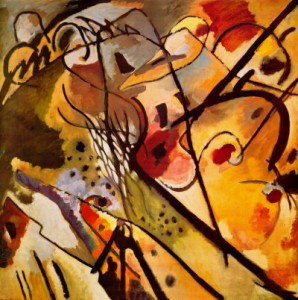If a disease is not what we want why are people getting sick?
Sickness is a sign of unbalance. When you are sick something in your body is unable to cope with the sickness. The part that unable to cope with is your immune-system. This system is highly connected to your centre or your consciousness. In the Chines theory of acupuncture this centre is connected to the spleen.
If you are not conscious your immune-system gets into trouble. This gives a first answer to the question.
When you get sick you are the cause of your own sickness because you have been neglecting the signs of your body that there was a severe unbalance.
Some people will argue that it was impossible to do something about it because external circumstances (virusses, husband, work, etc) where so strong that they unable to do something about it.
When you analyze these situations you will always find that people are able to change the situation but they did not want to take the consequences.
They felt powerless.
Now there is one issue that complicates this discussion and that is death.
At a moment we all die and the dying is caused by something (a sickness?) and this sickness is something else because we have to die some moment.
Perhaps dying is not caused by a sickness but the way we die and the moment we die is programmed in our system.
Perhaps we are able to speed up this moment of death by not keeping our balance.
I think there is a case to make that you are really responsible for all the diseases you get but you are not responsible for the your death if you take the responsibility of keeping your balance.
Death is a fact of life itself.
If we move one level higher things become more complicated. If we move to the level of the soul things change heavily.
They change in two aspects. You have to believe the human being is a soul that is using a vessel called our body and you have to believe that the soul makes a plan when he occupies the vessel. In this plan sickness plays a role.
The main story about the soul is that we are veiled when we enter to body. We forget the plan and we even forget the fact that we are a “soul in a vessel”.
The last point I really doubt. The story of the soul is widespread and is told in a very similar way in all the cultures of the earth. You must have heard about it.
Why is it questioned?
It is questioned by Science because there is no proof. Many people have a knowledge about former life’s. This is not sufficient to imagine that there is something that persists.
If the story of the soul is true the answer to the question becomes even more simple. The answer is that you have chosen to experience what you experience only the part of you that has chosen this experience is not You but something You are on another level.
Would it help if we could discover our plan?
I think this would help a lot because when you know the plan you have finally broken the veal and you are free to do what you want to do.
What would you do?
Let us start with three wishes.
 In the near future we will have many technologies that will allow us to modify and assist our emotions and reasoning.
In the near future we will have many technologies that will allow us to modify and assist our emotions and reasoning.


